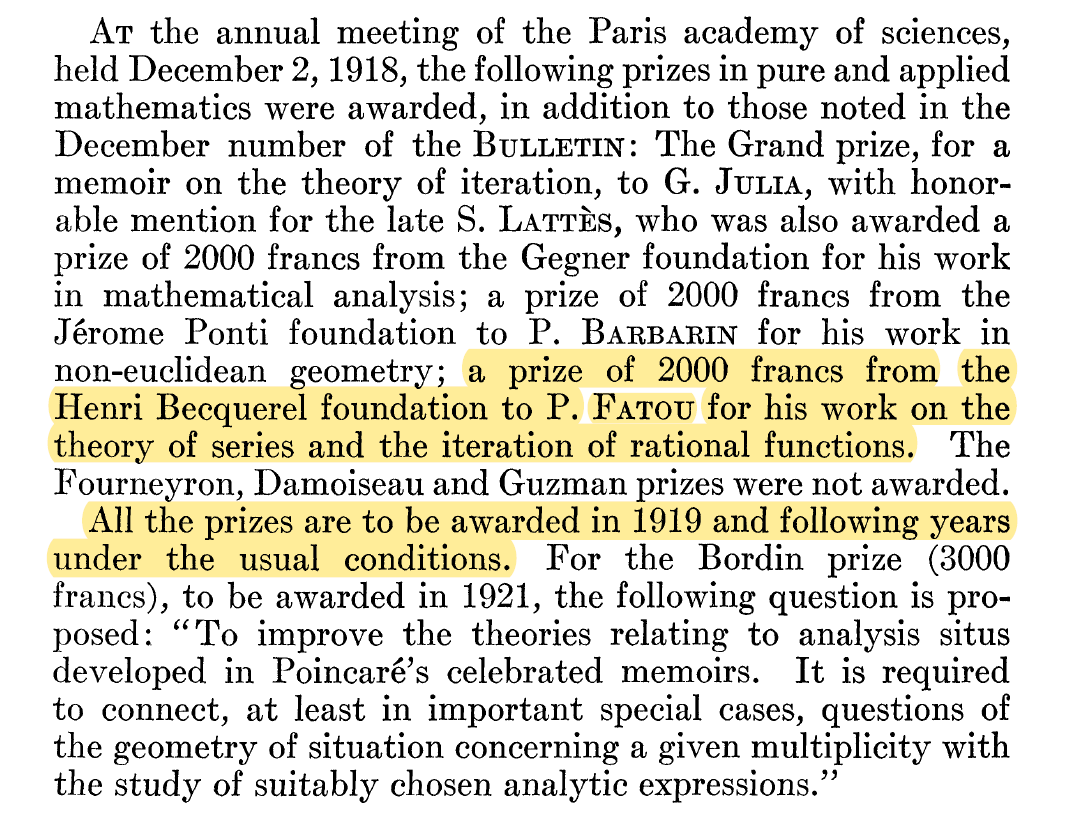On this biography page of André Bloch, it is said that
The Académie des Sciences awarded him the Becquerel Prize just before his death.
This claim is also repeated in PlanetMath, Wikiversity and also Hersh & John-Steiner's book: Loving and Hating Mathematics: Challenging the Myths of Mathematical Life (+link).
There are several other resources backing this claim. But on the other hand, the official website of the Becquerel Prize says: (emphasis mine)
The Alexandre Edmond Becquerel Prize was established in 1989 by the European Commission at the occasion of the 150th anniversary of Becquerel’s classical experiment in which he discovered the photovoltaic effect. Its purpose is to honour scientific, technical or managerial merit in the development of photovoltaic solar energy, attained over a long period of continuous achievements, or very exceptionally, for some extraordinary invention or discovery.
So clearly, this Becquerel Prize has nothing to do with mathematics. I suspected that there was another Becquerel Prize in 1930s or 1940s, which was awarded by the Académie des Sciences. But I found no record of that except the Wikipedia page of Yvette Cauchois, who was a physicist known for her contributions to x-ray spectroscopy and x-ray optics:
Henri Becquerel Prize from the French Academy of Sciences (1935)
Therefore this limited sample just strengthens my suspicion that there might no Becquerel Prize for mathematicians. And this part of André Bloch's biography also adds up to the other myths surrounding him.
So my questions, as the title says, are:
- Was there a Becquerel Prize for mathematicians during that era?
- Did André Bloch receive it?


